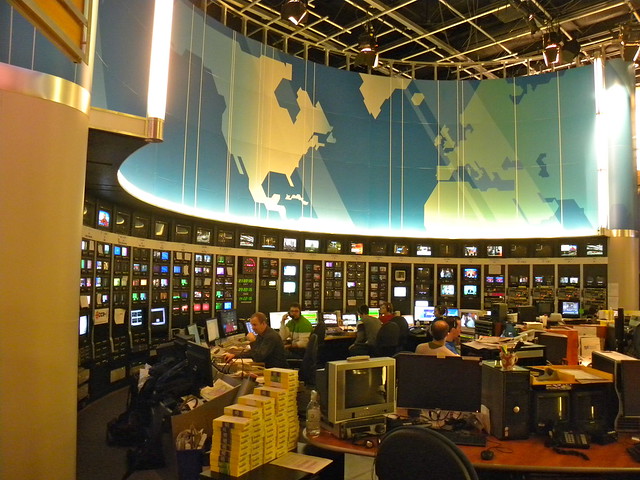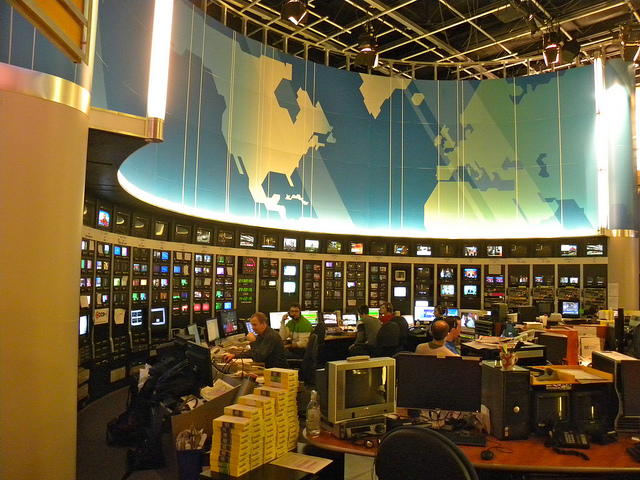To say that the media world has undergone some changes in the past decade or so would be an understatement. Gone are the days of preparing all day for an evening’s broadcast. Today, reporters are pulling together stories on the fly, crafting them into 140-character tweets for near real-time delivery and linking to an online version, while still prepping a final version for the evening’s broadcast or the next day’s edition.

The proliferation of social media has, quite simply, rocked the media world. We are now living and working in a hyper-connected world that bombards us with bits and bytes of data and information at every turn.
While I’ve felt the effects of these changes directly as a PR professional, I began thinking more earnestly about how all these changes affect “the average person” after hearing media futurist and author Dan Gillmor speak recently at Champlain College.
The new media frontier: Good news, bad news
The changing media landscape has brought both good news and bad news. First the good news: it’s now easier than ever to get information out to the masses; anyone can be a publisher of this content; and, there are lots of free ways to do it. And the bad news: it’s now easier to than ever to get information out to the masses; anyone can be a publisher of this content; and, there are lots of free ways to do it.
During his talk, Gillmor gave a brief history of the media world, touching on the major innovations (think printing press, telegraph, radio, and television) that have profoundly changed the sharing of information. Throughout this history, media consumers have played a relatively passive role. We simply absorbed this information and it helped form the basis for our opinions, beliefs and biases we held as individuals or as a society.
Fast forward to today—the age of the Internet—and our role as consumers of media looks much, much different. We now have the tools and technology to play a more active role—we can be creators and distributors of content and no longer need to rely on the media for our information.
New rules of the road for media consumption
We, as consumers, can be as active and engaged as we want to be in this new world. Gillmor isn’t suggesting that we all need to become journalists—tweeting, writing and posting for the world. But we need to become what he refers to as “media active”or what I would call being “media savvy.”
How? By following some “rules of the road” when consuming or engaging with information:
- Know your source.
- Check your facts.
- Seek out all sides of an issue.
- Ask questions!
Interestingly, these rules are the same ones that my journalism professors instilled into me as a young journalism student many years ago. They provided solid guidance for me then and would well serve anyone using social media today, whether creating content, consuming content or sharing content created by others.
New levels of engagement
With the volume of information hitting us, short attention spans, and still only 24 hours in a day, how do we get our information? How do we decipher fact from fiction? Without becoming “media active” and taking the information we consume with a healthy dose of skepticism, we are at risk of becoming educated or informed by Tweets, posts or headlines. A businessperson I know laments that we are making major life decisions “by bylines or sound bites.” It’s only human nature to seek out those sources that support our own beliefs, biases and interests, ignoring all other information and facts at our own peril. The phrase “caveat emptor” (buyer beware) comes to mind.
So while the media landscape has changed immensely, the rules for being media savvy have not. What has changed is how involved ordinary people, like you and me, can be and need to be in this new world. Dan Gillmor remains optimistic about the changing media landscape. What remains to be seen is how well or how willing consumers will be to accept their new more active role in this world.
How do you consume information is this new world? What rules of the road do you follow?
——-
Photo credit: JasonParis via flickr – Montréal, QC (Maison Radio-Canada)


Great advice on intelligent media consumption MT @pheffernanvt: The New Media Frontier: Good News, Bad News http://t.co/AVWfc95aWu